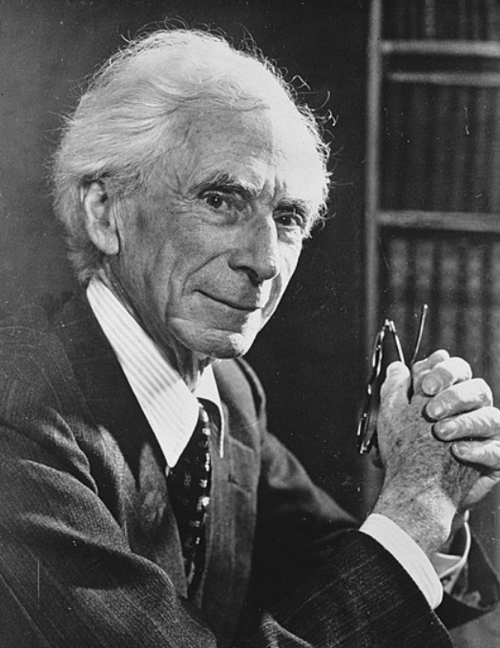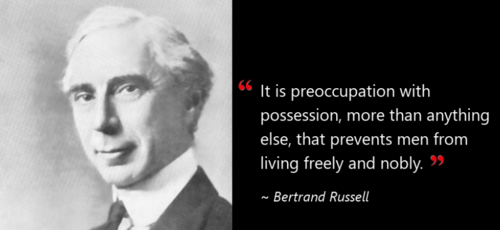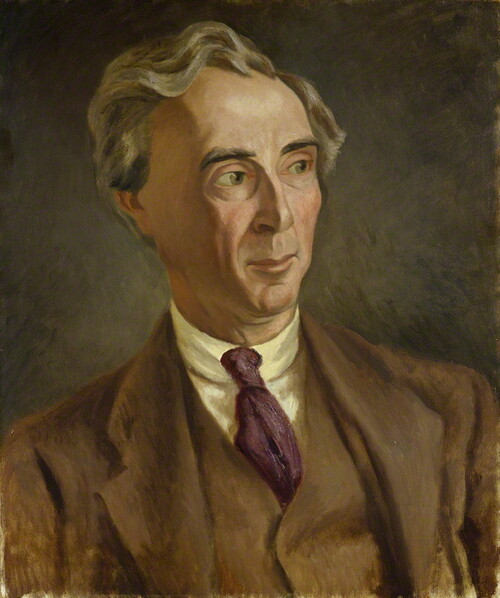
Great thinker Bertrand Russell
150 year passed since his birth
From Encyclopedia Britannica
Bertrand Russell, in full Bertrand Arthur William Russell, 3rd Earl Russell of Kingston Russell, Viscount Amberley of Amberley and of Ardsalla, (born May 18, 1872, Trelleck, Monmouthshire, Wales—died February 2, 1970, Penrhyndeudraeth, Merioneth), British philosopher, logician, and social reformer, founding figure in the analytic movement in Anglo-American philosophy, and recipient of the Nobel Prize for Literature in 1950. Russell’s contributions to logic, epistemology, and the philosophy of mathematics established him as one of the foremost philosophers of the 20th century.
Russell’s early life was marred by tragedy and bereavement. By the time he was age six, his sister, Rachel, his parents, and his grandfather had all died, and he and Frank were left in the care of their grandmother, Countess Russell.
When he died in 1970 Russell was far better known as an antiwar campaigner than as a philosopher of mathematics. In retrospect, however, it is possible to see that it is for his great contributions to philosophy that he will be remembered and honoured by future generations.

A lot can be written about this absolutely exceptional man. He was engaged in various fields of human knowledge and during his extremely long life he wrote countless mathematical and philosophical works. He belongs among the greatest thinkers of the twentieth century.
Areas of his interest were gnoseology, ethics, logic, mathematics, metaphysics, philosophy of language, philosophy of mind, philosophy of religion, philosophy of science.
Bertrand Arthur William Russell was born into a noble family in Trellech, England, at the age of two he lost his mother, at the age of four his father, so his grandmother took care of him. His grandfather was the minister and prime minister of several British governments, John Earl Russell. The first education he received at home. From 1890 he studied mathematics and philosophy at Trinity College, Cambridge and taught there for several years. The next years he was a freelancer, holding lecture seminars at various universities and, most importantly, writing. Articles and books cover a wide area from economics, ethics, philosophy, sociology to politics, pedagogy, history and, of course, mathematics. His pacifist views cost him his professorship during World War I and landed him in prison.
In 1940, he won a one-year position at New York University, but religious and conservative circles launched a campaign against him and forced a court decision to annul the contract. This affair also caused Russel financial difficulties, as it prevented him from publishing (this was his main source of income). In 1944, he returned to Trinity College, Cambridge, where he received a professorship. After World War II, he fought hard for nuclear disarmament, speaking out against US involvement in the Vietnam War and the intervention of the Warsaw Pact states in Czechoslovakia. In the 1950s, together with others, he protested to government against the cruelty of political processes with representatives of non-communist parties. Together with Albert Einstein, he was the initiator of the peace manifesto and the founder of the Pugwash movement of scientists for peace.

Russell has been since 1st world war and during World War II known as an ardent pacifist, which led him to prison for a time.
During his long career, Russell made contributions to a broad range of subjects, including politics, ethics, educational and religious studies and the list of his works is extremely long.
You can find his quotes in wiki https://en.wikiquote.org/wiki/Bertrand_Russell and here are some of them :
Freedom comes only to those who no longer ask of life that it shall yield them any of those personal goods that are subject to the mutations of time.
No man is liberated from fear who dare not see his place in the world as it is; no man can achieve the greatness of which he is capable until he has allowed himself to see his own littleness.
Political ideals must be based upon ideals for the individual life. The aim of politics should be to make the lives of individuals as good as possible.
The best life is the one in which the creative impulses play the largest part and the possessive impulses the smallest.
A process which led from the amœba to man appeared to the philosophers to be obviously a progress – though whether the amœba would agree with this opinion is not known.
Organic life, we are told, has developed gradually from the protozoon to the philosopher, and this development, we are assured, is indubitably an advance. Unfortunately it is the philosopher, not the protozoon, who gives us this assurance.
The good life is one inspired by love and guided by knowledge.
Love is better than hate, because it brings harmony instead of conflict into the desires of the persons concerned. Two people between whom there is love succeed or fail together, but when two people hate each other the success of either is the failure of the other.
To fear love is to fear life, and those who fear life are already three parts dead.
I found one day in school a boy of medium size ill-treating a smaller boy. I expostulated, but he replied: "The bigs hit me, so I hit the babies; that's fair." In these words he epitomized the history of the human race.
The fundamental cause of the trouble is that in the modern world the stupid are cocksure while the intelligent are full of doubt.
Too little liberty brings stagnation, and too much brings chaos
The megalomaniac differs from the narcissist by the fact that he wishes to be powerful rather than charming, and seeks to be feared rather than loved. To this type belong many lunatics and most of the great men of history.
All forms of fear produce fatigue

Here some of the Youtube recordings with Bertrand Russell
https://www.youtube.com/watch?v=xL_sMXfzzyA 1952, 30 minutes, 80th birthday
https://www.youtube.com/watch?v=ihaB8AFOhZo 1959 message to future generations
For those who want to read more
https://www.themarginalian.org/tag/bertrand-russell/
* * *
Thank you for reading
Margaret
